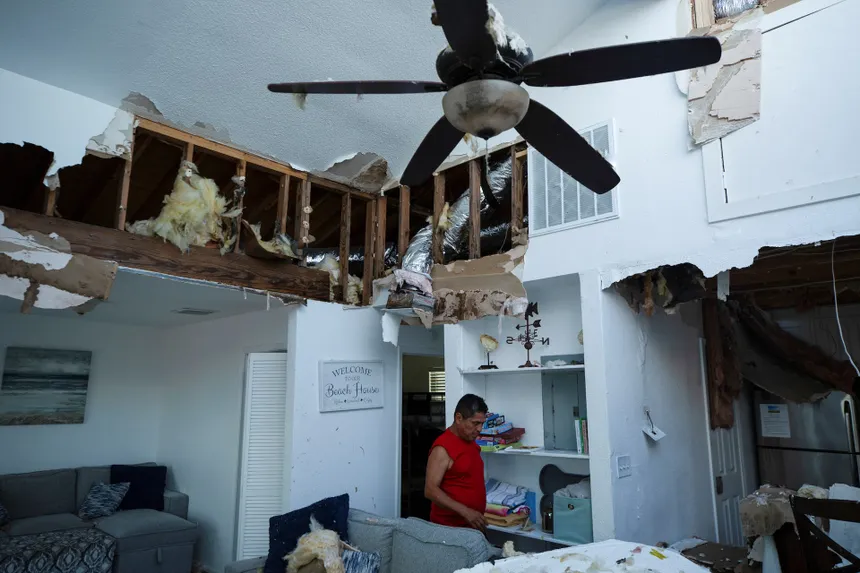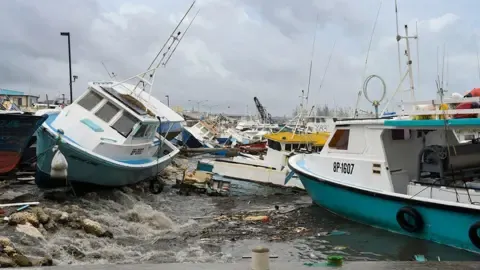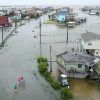Prime Minister Ralph Gonsalves of St Vincent and the Grenadines (SVG) spoke urgently from the official residence in Kingstown, where the sounds of torrential rain and howling winds surrounded him. The storm, Hurricane Beryl, had just made landfall as an “extremely dangerous” category 4 storm, bringing catastrophic destruction to the tiny island nation.
“It’s a monster,” Gonsalves said, his voice strained. “We have no electricity, and as I speak, the rain is pounding against the official prime minister’s residence, and the winds are howling. It’s going to get much worse.” He warned that the coming hours would be “horrendous.”
The storm’s fury was evident in the footage shared on social media, showing metal roofing sheets soaring through the air and videos of downed power lines, smashed vehicles, and thousands seeking shelter. On Union Island, a staggering 90% of houses had lost their roofs or been severely damaged.
As the crisis unfolded, Gonsalves lashed out at the lack of political will in western Europe and the US to tackle the global climate crisis. He pointed to the recent UK election campaign, where climate change played a minimal role in the parties’ messages, and criticized the “talk shop” that is Cop, the annual UN climate change conference.

Gonsalves exclaimed, “For the major emitters of greenhouse gases, those who contribute most to global warming, you are getting a lot of talking, but you are not seeing a lot of action – as in making money available to small-island developing states and other vulnerable countries.” He hoped that the devastating effects of Hurricane Beryl would force these nations to reconsider their stance and honor their commitments on climate action.
SVG, still recovering from the aftermath of a major volcanic eruption in 2021, and neighboring Grenada bore the brunt of Hurricane Beryl. With the storm making landfall in Carriacou, one of Grenada’s islands, officials received reports of widespread devastation.
As the Global South feels the disproportionate impact of climate change, Gonsalves’s words echoed the frustration and fear felt by small island nations. He lamented the lack of decisive action from the major emitters, stating, “Climate change is not playing any major part in the campaigns. While you hear one or two people from the Labour party talk about it and some concerns from the Greens, it is really not at the core of the messages from the major parties to the British people… the same thing is happening in other parts of the election in western Europe and the United States as countries move to the right.”

